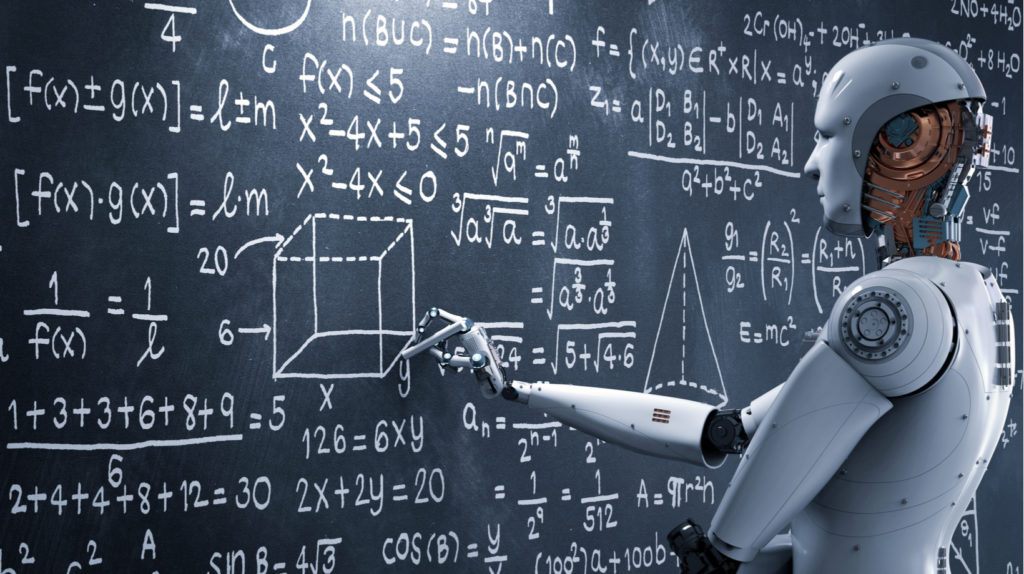
Machine learning is no longer just fiction. The world already has interactive devices and adaptive programs for learning, making it possible to use the piecemeal intellect to staff the educational process and simplify specific technical tasks.
Of course, the Internet changed our perception of learning, especially when it became possible to buy coursework online, as it helped a lot of students across the world. However, AI can offer more than that. Read our thoughts on this topic:
What is Artificial Intelligence?
AI is a broad notion. It encompasses any technology that develops human thinking and skills such as understanding complex information, independent drawing of conclusions, and conducting a conscious and cooperative dialogue.
Machine learning is a type of AI, a process in which the software is taught using the same principle as humans. In such training, the software analyzes significant amounts of data and learns patterns for classifying information or making predictions. The cyclic nature of this algorithm allows the program to “learn,” changing its intentions depending on the previous conclusions.
An AI can absorb much more information than a human. And also significantly more quickly and accurately perform the task. Some educational software developers began to use these advantages to create programs tailored to the peculiarities of each student. For example, the nonprofit organization Enlearn of Seattle developed an adaptive education platform that uses machine learning to prescribe personalized instructional plans to allow each student to have a reasonable amount of time to learn.
The program uses technology developed by the Center for Game Science at the University of Washington. It improved the effectiveness of eighth-grade algebra lessons by an average of 93% in just a year and a half.
Improving Student Safety
An AI can also be helpful outside of the school. For example, Los Angeles-based GoGuardian uses machine-learning technologies to improve the system of filtering data on the Internet and monitoring, which are used in Chromebooks.
According to the company’s employees, filtering sites based on web addresses can be problematic because the Internet is constantly changing. Instead of blocking students’ access to immoral and harmful sites based on their name and address, the software identifies these sites based on their content due to the AI. The developers have given the program samples of information inadmissible for specific age groups, and the program is trained to distinguish between them. Consumers can constantly report certain program inaccuracies, upgrading it when they accidentally sign the site as forbidden.
Like many of these features, GoGuardian also sends automatic notifications to administrators (teachers) when students search the Internet for unacceptable and suspicious or create a document with inappropriate content. This function of monitoring behavior in real-time can prevent students from hurting themselves or others. For example, if an administrator sees that a student is seeking information about committing self-harm, they can avoid a potential disaster.
Already the sign of the ban on using certain critical words on the Internet has many errors because it does not consider the context. But with a piecemeal intécteur, the practice of filtration and retrieval becomes more accurate.
The chief technology officer of the Independent School District in Texas told me he had received a message about a student. The student’s online behavior indicated that he was causing bodily harm to himself. Thus, the situation was resolved.
Key Problems
Despite the considerable potential, the use of an individual intellect has its limitations. It works best when there is a large volume of applications. However, in a field as risky as education, where the teacher cannot make significant mistakes, it can be essential to get a lot of examples of what not to do.
The intuitive must also use only the correct data to reach the right conclusions. The results will turn out if inaccurate information is spent on the total data. There is no such thing as unexamined information.
Technology also causes fears about the protection of personal data. It is vital to discuss the quality and accuracy of the information and its responsible use. Educational institutions should consider what steps they can take to protect students’ data.
In addition, some adaptive educational supplements do not use accurate machine learning technology as such but rather a system that selects from many predesigned behavioral scenarios. Therefore, educators should carefully review the companies that claim to use piecemeal in their products.
And keep in mind: if the most you can do is read the whole section of the textbook, it will not help you in learning.






